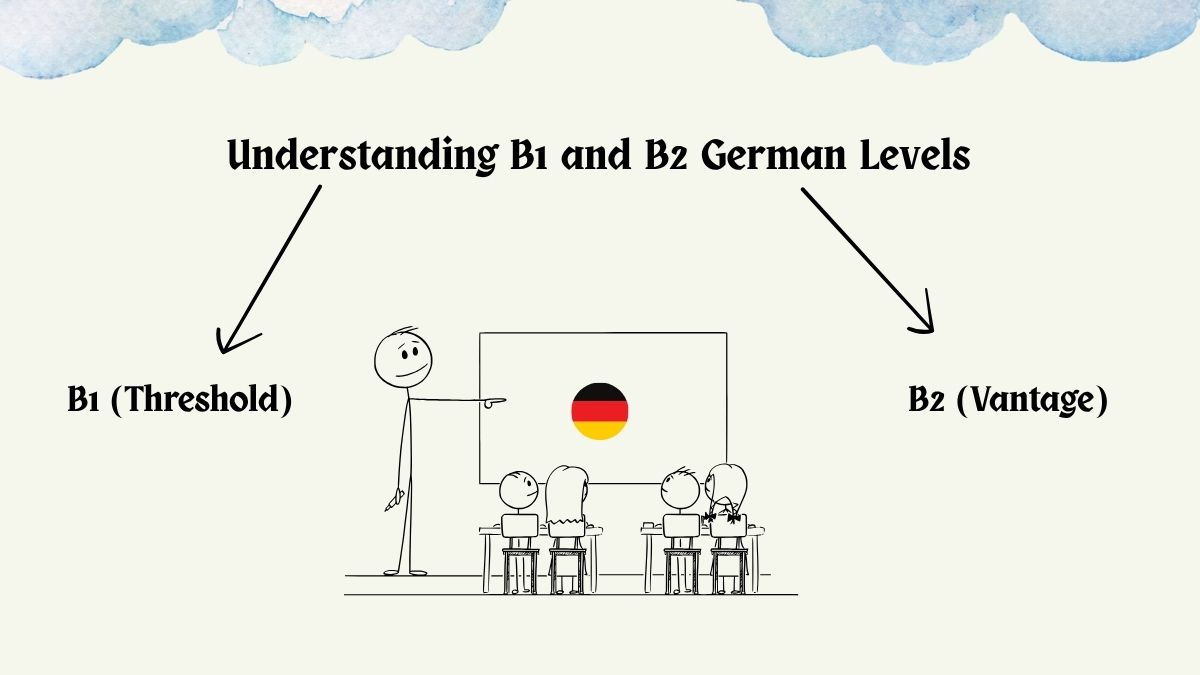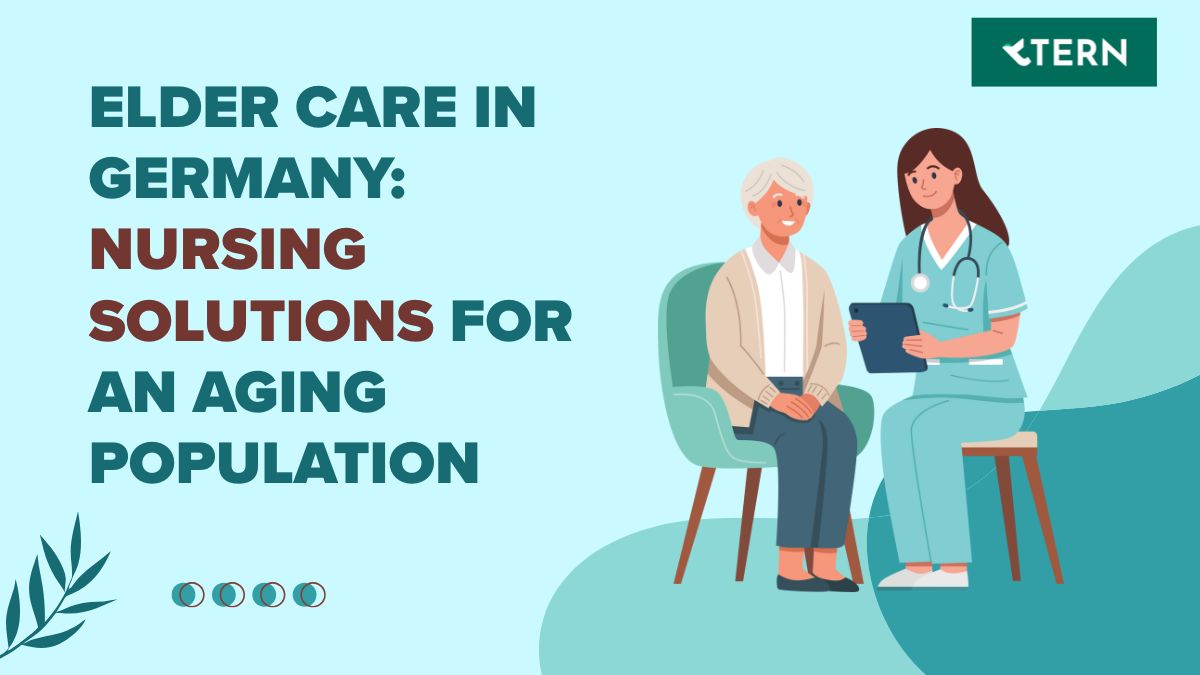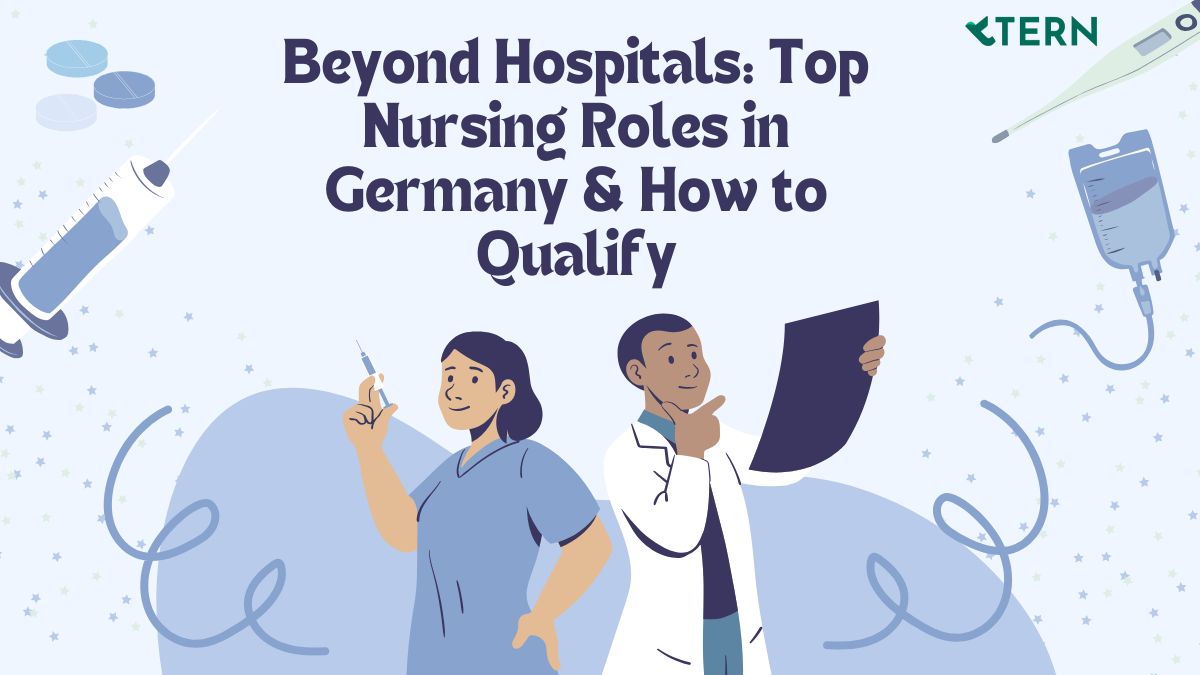Krankenpflege in Deutschland
July 28, 2025
•
Do Nurses Need B1 or B2 German to Work in Germany? Here’s the Answer

Germany’s healthcare sector is a beacon for professionals worldwide, offering rewarding careers, competitive salaries, and a high quality of life. However, one critical requirement stands out: German language proficiency. For nurses and caregivers, achieving the right level of German—B1 or B2—can make or break your journey. This blog breaks down the differences between B1 and B2 German, tailored for healthcare professionals, and clarifies expectations based on country, role, and employer. Let TERN guide you through the bureaucracy to unlock your career in Germany.
Understanding B1 and B2 German Levels

The Common European Framework of Reference for Languages (CEFR) defines B1 and B2 as follows:
- B1 (Threshold): You can understand and use familiar everyday expressions, handle routine tasks, and communicate in simple, direct exchanges. In healthcare, this means managing basic patient interactions, understanding straightforward instructions, and navigating daily workplace scenarios.
- B2 (Vantage): You can engage in more complex conversations, understand detailed medical instructions, and communicate fluently with patients and colleagues. This level allows for nuanced discussions, critical for accurate diagnoses and patient care.
For healthcare professionals, the difference between B1 and B2 is significant. B1 may get you in the door, but B2 is often required to fully practice as a registered nurse or to excel in roles requiring deeper patient interaction.
Language Expectations by Role: Nurse vs. Caregiver

Nurses
Nurses in Germany work in hospitals, clinics, or specialized settings, performing tasks like administering medication, monitoring patients, and collaborating with healthcare teams. Language requirements include:
- B1: Sufficient to start as a nursing assistant or begin a nursing Ausbildung (vocational training). You can handle basic patient communication, such as asking about symptoms or explaining simple procedures. However, most states require you to reach B2 within 18 months of arrival to become a registered nurse.
- B2: Mandatory for full licensure (Approbation) and to work as a registered nurse. B2 ensures you can understand complex medical terminology, follow detailed instructions, and communicate clearly with patients and colleagues. Specialized hospitals may require B2 for roles involving complex cases.
Example: A nurse with B1 proficiency can assist with basic care tasks under supervision but may struggle with detailed patient histories. B2 proficiency allows you to discuss treatment plans, understand medical documentation, and build trust with patients.
Caregivers
Caregivers, often working in nursing homes or home care, assist with non-medical tasks like bathing, dressing, or household chores. Language expectations are slightly less stringent:
- B1: Generally sufficient for caregiver roles, as tasks focus on daily support rather than medical procedures. You can communicate with elderly patients about routine needs and coordinate with families or outpatient services.
- B2: Preferred by some employers, especially in settings requiring coordination with medical staff or handling more complex patient interactions. B2 enhances your ability to integrate into the workplace and community.
Example: A caregiver with B1 can help a patient with daily activities and basic conversations, while B2 allows for better collaboration with nursing services and understanding patient emotions or concerns.
Language Expectations by Country of Origin

Language requirements can vary slightly depending on your country of origin, primarily due to visa and recognition processes:
- EU/EEA Countries and Switzerland: Nurses and caregivers benefit from automatic recognition of qualifications, but B1 is typically required to start, with B2 needed for full nursing licensure. Caregivers may work with B1 alone in less regulated settings.
- Non-EU Countries (e.g., India, Brazil, Mexico): You must undergo a qualification recognition process (Anerkennung). B1 is often sufficient to enter Germany as a nursing assistant or trainee, but B2 is required for full registration as a nurse. Some programs, like the Triple Win Project, provide B1 training in your home country, with B2 completion in Germany.
Example: A nurse from India with B1 can start as a nursing assistant in Germany while pursuing B2 and qualification recognition. An EU nurse with B2 can apply directly for registered nurse positions.
Employer Expectations

German employers, including hospitals, nursing homes, and agencies, set varying language requirements based on their needs:
- Hospitals: Most require B2 for registered nurses due to the need for precise communication in clinical settings. Some offer language course support for B1 candidates to reach B2 post-arrival.
- Nursing Homes: Often accept B1 for caregivers and nursing assistants, as tasks are less medically intensive. However, B2 is preferred for long-term career growth and better integration.
- Recruitment Agencies: Agencies like TERN or Care With Care recommend achieving B2 before arrival to streamline the process and access better job opportunities. They may offer language scholarships or reimbursements for B1/B2 courses.
Note: Since March 2024, nurses from non-EU countries with B1 can work as nursing assistants under a recognition partnership while pursuing B2 and qualification recognition, easing the transition.
Why B2 is Worth the Effort
While B1 offers a faster entry into Germany’s healthcare system, B2 provides significant advantages:
- Career Advancement: B2 is required for full nursing licensure and opens doors to specialized roles like intensive care or oncology.
- Patient Safety: Fluent communication reduces the risk of misdiagnosis or medication errors, ensuring high-quality care.
- Integration: B2 helps you connect with colleagues and patients, fostering trust and community integration.
- Financial Stability: B2-qualified registered nurses earn higher salaries (approx. €2,800/month) compared to nursing assistants (€2,000/month).
How Long Does It Take?
- B1: Typically 3–6 months of intensive study (20 hours/week), achievable in your home country or through employer-sponsored programs.
- B2: An additional 3–6 months from B1, though it may take longer (1–2 years) if studied part-time alongside work.
TERN’s Nurses to Germany program offers tailored A1–B1 (6 months) or A1–B2 (9 months) courses, focusing on medical vocabulary to prepare you for healthcare settings.
Tips for Success
- Choose the Right Exam: Opt for recognized certifications like Goethe, TELC, or ÖSD. For nurses, the TELC B1/B2 Pflege exam is tailored for healthcare but may be more challenging.
- Start Early: Begin learning German in your home country to reduce pressure post-arrival. TERN provides access to Duolingo, LMS, and medical-focused curricula.
- Leverage Employer Support: Many employers offer language course subsidies or reimbursements. Check with your recruiter or hospital.
- Practice with Native Speakers: Engage in language exchanges or use apps like Deutsch am Arbeitsplatz for healthcare-specific vocabulary.
- Plan for B2: Even if B1 is sufficient, aim for B2 to unlock better opportunities and ensure long-term success.
Take the Next Step with TERN
Ready to launch your healthcare career in Germany? TERN is your trusted partner to navigate the complexities of language requirements and bureaucracy. Our Nurses to Germany program offers personalized A1–B2 courses tailored for healthcare professionals, with expert tutors, medical-focused curricula, and access to tools like Duolingo and LMS. We also guide you through visa processes, qualification recognition, and job placement with top employers. Don’t let language barriers hold you back—join TERN today and start your journey to a rewarding career in Germany. Visit TERN’s Nurses to Germany or contact us now to enroll!
Conclusion
Choosing between B1 and B2 German depends on your role, country of origin, and career goals. B1 offers a quicker entry for nursing assistants and caregivers, while B2 is essential for registered nurses and long-term career growth. By understanding employer expectations and partnering with TERN’s specialized training, you can confidently navigate the path to a rewarding healthcare career in Germany. Take the first step with TERN and turn your dream into reality.
Ready to take the first step?
- Contact us on WhatsApp: Message us here to start your journey.
- Sign up on our platform: Visit our AI-powered platform to create your profile and explore opportunities.
- Fill out our form: Apply now by filling your details here!
Want to join the TERN team? Check out our listed jobs here. Whatever it is, don’t wait—your dream career is within reach with TERN.







